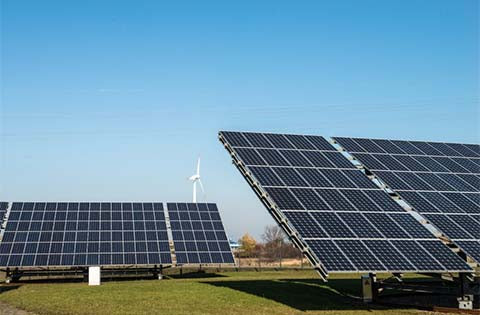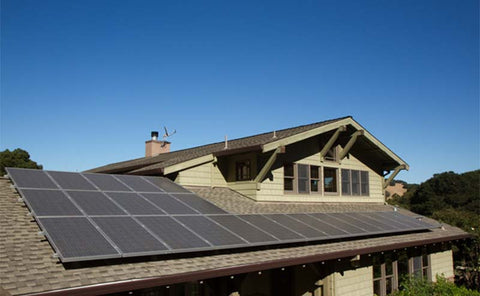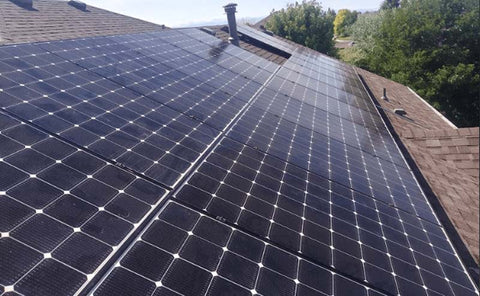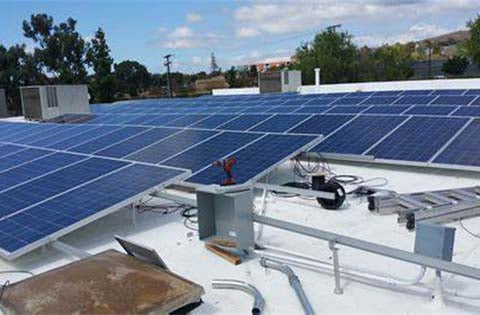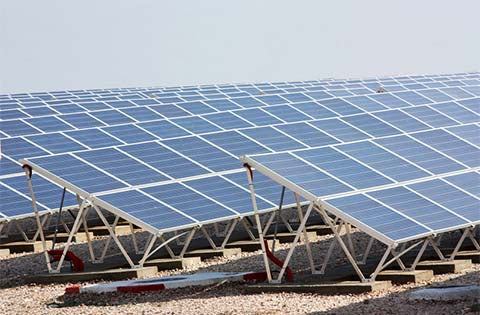The lifespan of solar panels are the most concerned question for most solar users. Investing in solar energy is a long-term commitment. The up-front cost can be hefty, but the investment pays for itself over time through tax incentives and monthly savings on your energy bill. As we all know, panels are typically warrantied for 25 years, so you can expect them to last at least that long. But in reality, studies have shown panels continue to operate at reduced efficiency long after the warranty expires.
Standard solar panel warranties
The typical warranty for solar panels is 25 years. During this period, manufacturers guarantee that panels will operate at or near peak efficiency. Most panels are covered to produce at least 80% of their rated output over the life of the warranty. For example, a 300 watt panel should produce at least 240 watts (80% of its rated output) at the end of a 25-year warranty.
Some companies offer 30 year warranties or promise 85% efficiency, but these are outliers. The standard is 25 years at 80% efficiency. Solar panels also have a separate workmanship warranty, to cover any manufacturing defects, such as a faulty junction box or frame. Typically the workmanship warranty is 10 years, with some manufacturers offering a 20 year workmanship warranty.
How to extend the life of your system
Keep in mind solar panels are likely going to be the most resilient part of your solar system. You’ll still need to maintain or replace inverters and batteries to keep everything running. Inverters have a shorter lifespan than your panels, and will need to be replaced regardless of what type of system you have. If you’re off-grid (or grid-tied with a battery backup), battery maintenance and replacement will add extra costs for you down the line. The best way to protect your investment is to inspect the system thoroughly upon installation. Check your racking to make sure the panels and wiring are secure. The biggest threats to the life of your panels are physical damage or electrical failure due to subpar installation.
Replace inverters after 10 years
Most grid-tie inverters have a 10-year warranty, and many manufacturers give the option to upgrade to 20 to 25-year warranty coverage. Warranty extensions for inverters are a smart investment. It’s safe to assume you’ll replace your inverter at least once before the warranty on your panels is up. If your inverter fails 15 years down the road, it will likely be replaced with a newer and better model.
Check with the inverter manufacturer about their extended warranty options and policies. Extended warranties are purchased directly from the manufacturer. Off-grid inverters have shorter warranties. They range from 1-5 years, with extensions up to 10 years available for a few models. When you purchase an extended warranty, look over the little details carefully. Some cover the cost of parts, but not the cost of labor. This might not bother you if you plan on swapping out the inverter yourself. But you may pay out of pocket if you need a contractor to replace the inverter down the line.
Maintain and replace batteries
Battery maintenance and replacement is one of the main expenses associated with off-grid systems. Even lower-upkeep battery types, like lithium and sealed lead acid batteries, still need to be inspected a few times per year. Most batteries come with a warranty of 3-10 years, depending on the brand. But if you don’t care for your batteries properly, they can fail within the first year of ownership.
For example, lead acid batteries need to be fully recharged after being used, and they will be permanently damaged if they sit for extended periods without being recharged. Most high-quality off-grid deep cycle batteries will last between 5-15 years, depending on the battery type and how they are used and maintained. You can extend the life of your batteries by caring for them properly and by ensuring they’re installed correctly.
The best thing you can do is design your system properly from the start. Account for the proper amount of battery capacity, solar power, and inverter output up front to keep everything working properly.
Account for efficiency loss
Here’s the main takeaway: it’s highly unlikely that you will need to replace your solar panels before the warranty is up. Solar panels last a long time – longer than the other parts of the system. However, the efficiency loss may mean your system no longer covers your energy needs. If your system output shrinks (or your energy usage grows), it’s possible to add capacity to your system, assuming the old and new parts are compatible. For more on that process, see our guide to expanding your solar energy system.
Twitter: Solarparts Instagram: Solarparts
Tumblr: Solarparts Pinterest: Solarparts
Facebook: Shenzhen Solarparts Inc
Email address: Philip@isolarparts.com
Homepage: www.isolarparts.com
